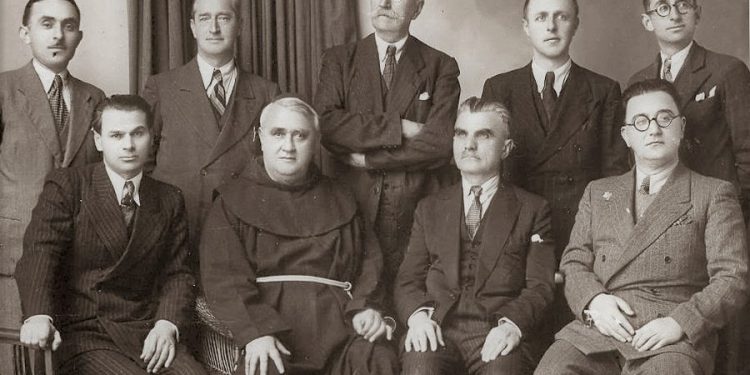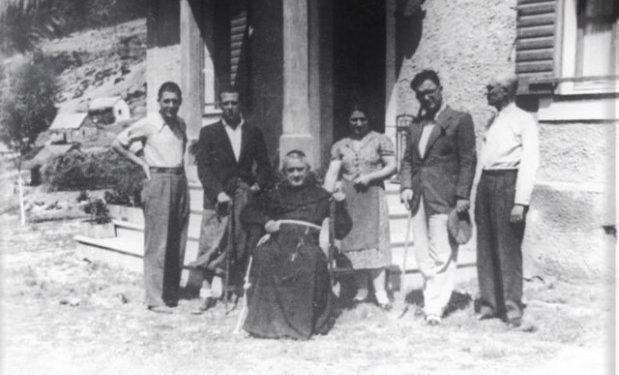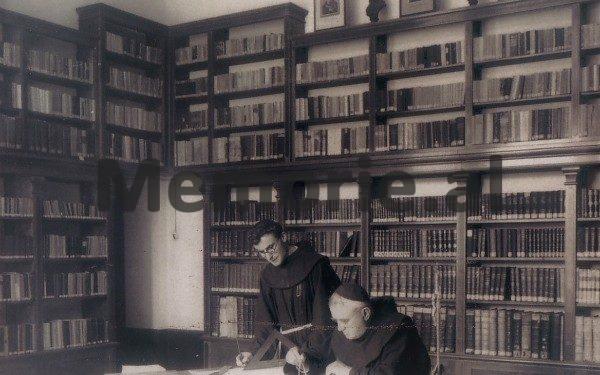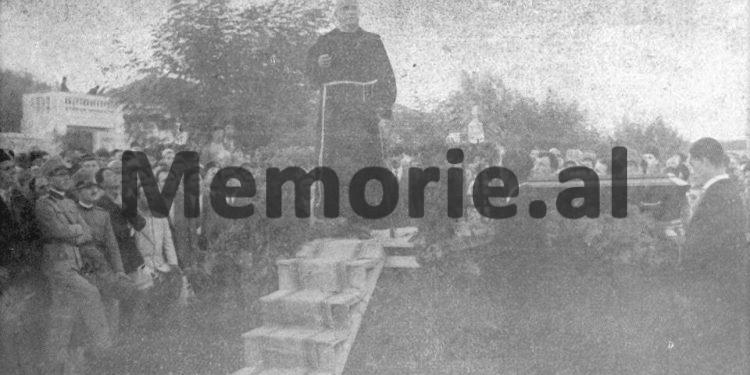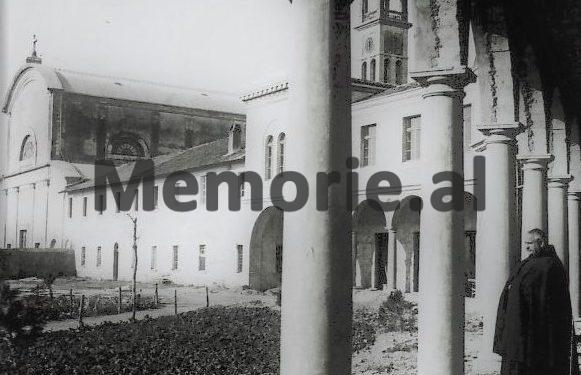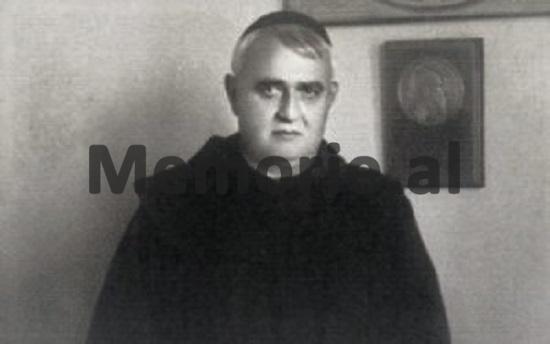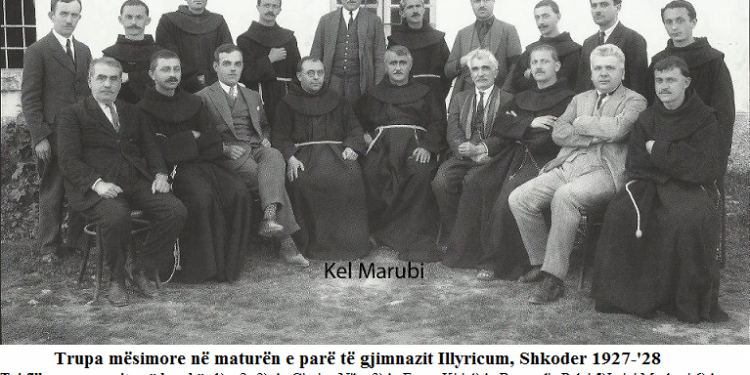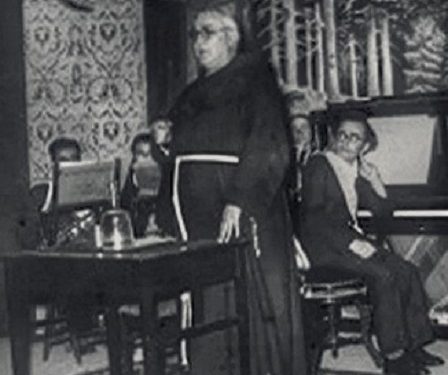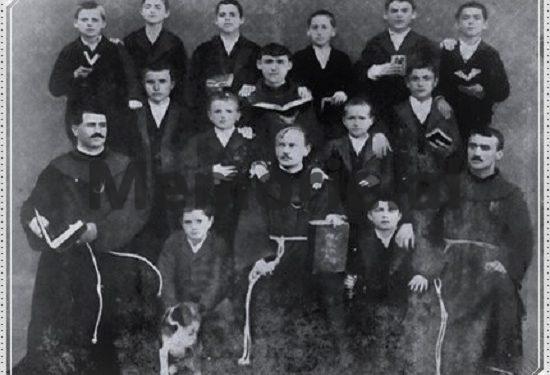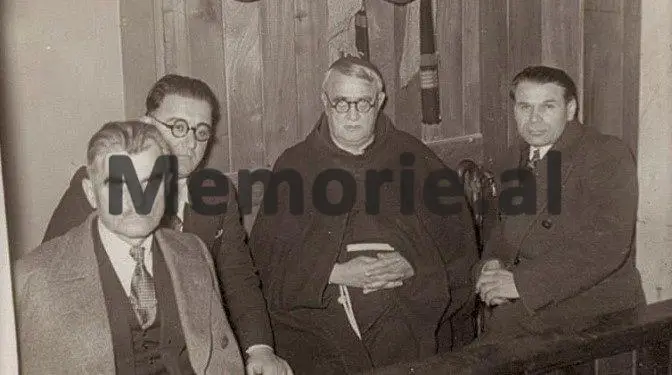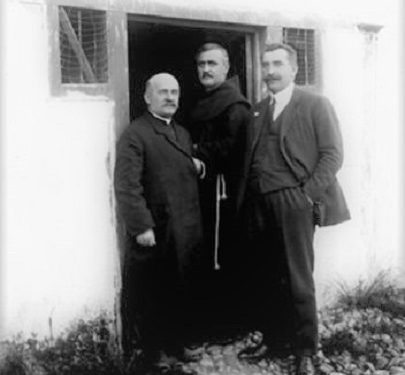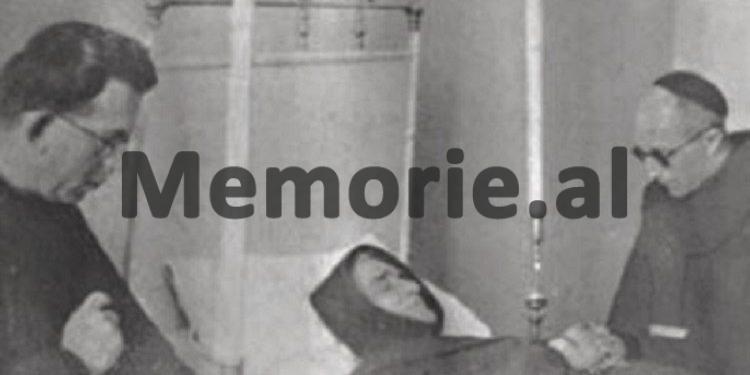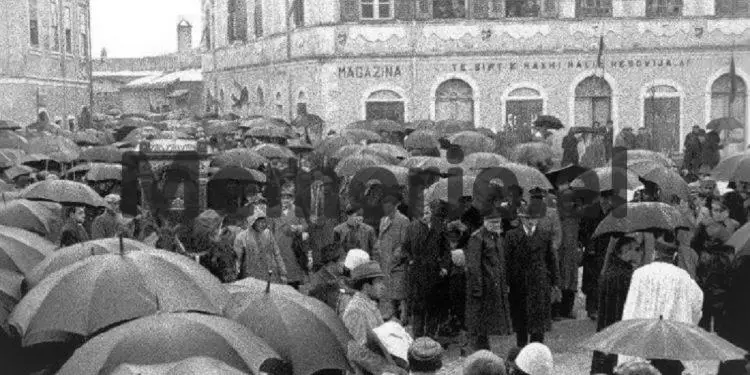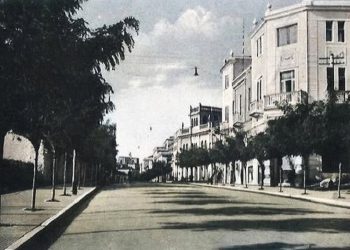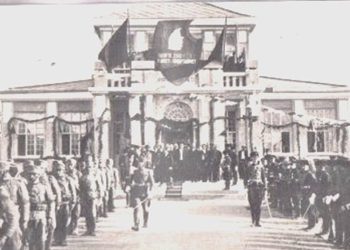Dashnor Kaloçi
Memorie.al/ The unknown story of the illegal publication of “Lahuta e Malcisë”, with the money that the Austro-Hungarians had given to Faik Konica, for the book of Filip Shiroka and the help of Father Pashko Bardhi, as well as famous personalities who sent telegrams consolation or attended the funeral of the “Singer of Lahuta”, as; Prof. Eqerem Çabej, Zenel Prodani, Spiro Vinjau, Muharrem Bajraktari, Rexhep Mitrovica, Bahri Omari, Karl Gurakuqi, Frano Alkaj, Mihal Bellkameni, Lasgush Poradeci, Ernest Koliqi, Hafiz Murati etc.
At the end of November 2002, on the occasion of the 90th anniversary of the Independence of Albania, the President of the Republic, Alfred Moisiu, decorated with the gold medal “Honor of the Nation”, Padre Gjergj Fishta, one of the most prominent figures and personalities of The history of Albania, which during the years of the communist regime of Enver Hoxha, was declared an enemy and reactionary and also his work, was banned in the first years after the war. It is worth welcoming that initiative of President Moisiu, to re-evaluate and put in their rightful place, many personalities from different fields of Albanian history, who during the period of the communist regime, not only were left in oblivion, but were denigrated and humiliated in the most unscrupulous way by the politics and propaganda of that regime. The decoration of President Moisiu awarded to Fishta, is attached to those that the clergyman, poet, writer, politician and great publicist, had received from Greece, Turkey, Austria-Hungary and Italy.
Like lightning spread throughout Albania, the sad news of the death of our National poet, Father Gjegj Fishta and amazed him remained today all over the Albanian world, to remember the zamadh name of the author of “Lahuta e Malcisë”, who has sung, as once Omer, the man and the faith of our fist, that has ignited the hearts of Albanians, as once Tirteu, of antiquity. These words, almost unknown until today, are those of Prof. Dr. Aleksandër Xhuvanit, one of the most prominent speakers of the Albanian language, held at the funeral ceremony of the funeral of the great poet, Padër Gjergj Fishta, in the city of Shkodra. Although Prof. Dr. Aleksandër Xhuvani, during the years of the communist regime, for a long time was elected as a deputy and member of the Presidency of the Democratic Front of Albania, although during those years, he was a very honored and respected man for his great work in the field of linguistics. His speech at the funeral ceremony of the National Poet, Father Gjergj Fishta, never saw the light of day, as it is known that Fishta and his work were banned in the first years after the war. What else did Prof. Aleksandër Xhuvani, in that speech that has never been made public, since then and who were the other personalities of politics and art who attended or sent telegrams of condolence at his funeral? The following article is about this.
Baptism of Fishta by De Martino
Gjergj Fishta was born on October 23, 1871, in the village of Fishta in the area of Zadrima and was the son of Ndoka of Ndoka and Mrs. Prenda, of Lazër Kuçi. After his birth, both parents, who were older believers, sent him to church to be baptized as was the religious rite of the Catholics? That newborn child was fortunate enough to be baptized by Pope Leonardo De Martino, who in addition to the task of priest that he performed until the end of his life, is also well known as one of the most famous poets and writers of the Arbëresh of Italy. . Father Leonardo De Martino, christened that little child named Zef, who was also his real name, until the period when he surrendered as a priest and took the name “George”.
Fishta received his first lessons at Troshan College, which at that time was one of the most famous, not only in that part of Northern Albania, but also in the Balkans, for the fact that he was directly under the administration and care of the Vatican and some of the most famous Catholic clergymen, especially from Italy, taught there. After completing his studies at Troshan College, where Fishta was noted for his rare natural intelligence, he was picked up by his professors (Franciscan friars) and sent on to pursue further studies in the field of theology in Bosnia, the former -Yugoslavia, which at that time was the province of the Austro-Hungarian Empire.
After graduating from that Franciscan College, he returned to Albania and was appointed a priest in the villages of Lezha, where he gave his first Mass, on February 25, 1894. In the area of Lezha, which at that time was under the administration of the Prefecture of Shkodra , Fishta, served as a priest for several years and then was assigned to several other villages such as Gomsiqe of Puka and the province of Hoti, in the area of Mbi-Shkodra. In 1902, Gjergj Fishta was appointed director of the Franciscan colleges in the city of Shkodra. The first job he did in those schools was to introduce the Albanian language in all subjects. Based on the great work done by Fishta, in those years for the spread of the Albanian language, in 1908, when the Congress of Manastir was held, which also determined the alphabet of the Albanian language, he was unanimously elected by all his delegates. , as Chairman of the Commission of that Congress. In the following years, Padër Gjergj Fishta founded the magazine “Hylli i Dritës”, which he published for the first time in 1913, which continued until 1944, when it was closed by the communists who came in power.
From 1916 to 1918, Padër Gjergj Fishta also directed the newspaper “Posta e Shqypnisë” and continued to be a regular member of the Literary Society “Bashkimi” based in Shkodra, which was established in 1899. In the years after the declaration of Independence, Father Gjergj Fishta also devoted himself to politics. In 1919, when the Peace Conference was held in Paris, he was sent as a member of one of the Albanian delegations, which participated with full rights in that meeting, which was attended by many delegations from different countries of the world. In 1921, in the first parliamentary elections, Padër Gjergj Fishta was elected deputy of the Prefecture of Shkodra and a short time later he was also elected deputy speaker of the Parliament. Based on the position he held, Fishta was sent as a representative of Albania to the inter-Balkan conferences that took place in Athens, Istanbul and Bucharest. Also in 1932, he made a long trip, of several weeks to the US, where he met with the Albanian diaspora, who had settled there and many of its personalities.
Konica sponsored “Lahuta e Malcisë”
Major work of Padre Gjergj Fishta. “Lahuta e Malcisë” started its publication as early as 1905 with a small volume entitled, “Te ura e Rrazhnica”, which was printed by the printing house “Vitalini” in Zadar, Dalmatia. The publication of that small book, in the form of a brochure, became possible only thanks to Faik Konica, who sent Fishta, 100 gold francs, given to him by the Austro-Hungarian Ministry of Foreign Affairs, for the publication of a book by the poet from Shkodra, Filip Shiroka. Since at the time that the money was given, Filip Shiroka had not yet prepared the book for publication and if there was no other work to be published in Albanian, it was stipulated that the money should be returned. At that time Faik Konica, in a letter sent to Padre Pashko Bardhi, who was a collaborator of the magazine “Albania”, asked him if the Literary Society “Bashkimi” had any work for publication and Pashko Bardhi, immediately recommended the publication of volume of Fishta, entitled “At the bridge of Rrazhnica”. After that, Faik Konica sent the money by mail and the book was published illegally, as at that time it was forbidden by law to publish books in Albanian in the lands under the administration of Austria-Hungary.
The publication of the book was made possible by Padre Pashko Bardhi, who went to the Plenipotentiary Minister of Austria-Hungary in Dalmatia and asked him to find a way to publish Fishta’s book. After listening to him until the end, the Austro-Hungarian Minister told Pashko Bardhi not to put the author’s name on the first page of the book, but on the last page and before the book was distributed, the last page should be detached so that there and only then could he escape legal punishment. In this way, that book was printed in 1905 and in all copies of that publication, where some copies are still preserved today, the name of the author, Gjergj Fishta, does not appear at all.
Reprints of “Lahuta”
“Lahuta e Malcisë” which is the main work of Padër Gjergj Fishta, is a volume of 30 songs, which was published in full, only in 1937. After the publication that work had a great echo and the many requests that were Fishta was appointed and republished it in 1939. After these two publications, “Lahuta e Malcisë” was republished again in 1958, in the Albanian diaspora, being prepared by Father Daniel Gjeçaj, in collaboration with Prof. Martin Camajn and Dr. Petro Vucanin. That reprint had about 700 pages, because it was also equipped with various explanations and comments. In addition to “Lahuta”, which is considered one of his greatest and most accomplished works, Padre Gjergj Fishta, wrote about 30 other works, where the most prominent are: “Parriz Dance”, “Fairy Mriz”, “Anzat e Parnasit”, “Gomari i Babatasit”, “Jerina” etc.
In addition to these works, Fishta collaborated closely, writing in the entire Albanian press of that time, from Faik Konica’s “Albania”, to Mit’hat Frashëri’s “Kalendari”, to “Hylli i Dritës” and to all literary magazines Albanian. At that time, Father Gjergj Fishta was considered one of the most prominent polemicists and among his polemics is the one entitled “Gabove Hilë”, in which he debated with the Minister of Education, Hil Mosi, regarding the closure of private schools in Albania. . That article made a big fuss at that time, all over the country and the whole Albanian press commented on it.
Fishta’s funeral ceremony
Father Gjergj Fishta passed away on December 29, 1940, in the civil hospital of the city of Shkodra, where he was hospitalized with a heart and lung disease. His funeral took place a day later, in the Franciscan church of Gjuhadol, which was attended by thousands of people from the people of Shkodra, including the cream of Albanian intellectuals and representatives from all schools in the country. Among the many speeches that were held at the funeral ceremony of his funeral which took place on the steps of the Post Office building in the city, came many telegrams, among which were those of Prof. Eqerem Çabejt, Zenel Prodan, Spiro Vinjaut, Muharrem Bajraktari, Rexhep Mitrovica, Bahri Omar, Karl Gurakuqi, Frano Alkaj, Mihal Bellkameni, Lasgush Poradec, Ernest Koliqi and Hafiz Murati. The last speech at that magnificent ceremony was delivered by Prof. Aleksandër Xhuvani, who was one of Fishta’s closest friends, who was almost unknown and had never seen the light of publication.
Aleksandër Xhuvani’s speech on the tomb of Gjergj Fishta
To create the idea of the oratory of Aleksandër Xhuvani, it is enough to remember his speech on the grave of Father Gjergj Fishta. This is also valid, to show clearly, his deep appreciation for the contribution of the Catholic clergy and personally of the Singer of Lahuta. For this reason, we have not touched on the original, in order to get acquainted with the linguistic treatises of that time:
The light news of the death of our National poet, Father Gjergj Fishta, and his astonishment, spread like wildfire all over Albania, reminding the whole Albanian world today, to remember the zamadh name of the author of “Lahuta e Malcisë”, who he sang, as Omar once did, the man and the faith of our tribe, which ignited the hearts of the Albanians, as once Tirteu, of old age. And they rightly told Fishta “Tirteu of Albania, that just as he with his elegies lit the hearts of the Spartans for war, so did the epic” Lahuta “, the odes and elegies of” Mriz i Zanave “and other poems, have gathered in the heart of our youth the immense love for the land of our ancestors and for our mother tongue. These two ideals: Patriotism and the preservation of language as the light of the eye, its delivery and use have been the poles around which, stretched the precious work of Fishta. And there is no one but us teachers that we have had and we have taught his poems to the students, who best appreciates his great work, which today as a great beacon of light has illuminated the mind of our youth , like a sparkling moral Gospel, has softened and educated her heart ”. This was a part of the speech of prof. Xhuvani on the grave of our poet, Gjergj Fishta./Memorie.al





